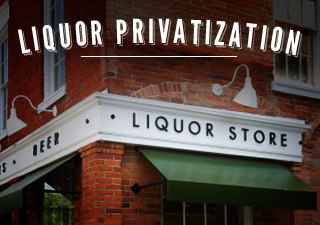Media
Did Union Boss Young Read Wrong Liquor Study?
 The union boss who earns nearly $300,000 each year by forcing liquor store employees to pay dues to his union released a statement regarding the PFM group’s report on liquor store privatization. Rather than assume the worst of Wendell Young IV, I’m just going with the presumption he read the wrong report.
The union boss who earns nearly $300,000 each year by forcing liquor store employees to pay dues to his union released a statement regarding the PFM group’s report on liquor store privatization. Rather than assume the worst of Wendell Young IV, I’m just going with the presumption he read the wrong report.
Young, for instance, states that “taxes are going to go up” and a proposal by Rep. Mike Turzai would “make Pennsylvania one of the top states for taxing wine and spirits.”
But that isn’t what the PFM report says. Rather, it says Pennsylvania is currently one of the highest taxed states. The proposal would keep taxes high, but would not raise them on the whole.
If Mr. Young wants to support cutting taxes on consumers, we welcome him to join us in that call. But I’m skeptical that he will, as he frequently defends the government-run monopoly for “generating” several hundred million dollars in revenue for the state. But that isn’t true either. Rather, the state stores collect taxes on behalf of the state, just as private stores would.
Young throws in his catch phrase about the “elimination of up to 5,000 jobs.” He is referring to the 3,200 liquor store employees (exaggerating the number of state store workers by a scant 56 percent), who would no longer be employed by the government. But the PFM study does discuss this, noting that liquor store employees would largely transition to other jobs, primarily in the new private-sector liquor stores.
And Young repeats prior claims that a Center for Disease Control analysis of privatization and consumption shows that “the scientific, peer-reviewed evidence is consistent over time and overwhelming.” But that isn’t true either.
The “CDC study” is really the preliminary recommendation of a task force under the CDC, and not yet “peer reviewed”. The task force reviewed 21 studies with more than 30-year-old sales data, some of which found increased consumption following privatization; others found no change or decreases. That is, the findings are mixed. Moreover, none of the studies sampled showed that privatization increased DUIs, alcohol related deaths, underage drinking, or any other social harms. (For a related review of the research on the effects of liquor privatization, click here.)
Young repeatedly claims prices would go up under privatization, but the PFM study concludes no change in overall prices (again, assuming taxes are kept high).
And for good measure, Young throws in a line about “liquor stores on every corner”, which is odd, since the PFM study estimates 3,500 liquor stores under a market-based system of licensing stores. This is about 43,000 stores short of even having one for every square mile in Pennsylvania. But when you’re a union boss, a little outlandish hyperbole goes with the territory.